When Dr. Uché Blackstock was a medical student at Harvard, she had a near-death experience that gave her a sobering outlook on the state of medical care in the U.S. Suffering from excruciating stomach pain, Blackstock took herself to the E.R., where, after hours of waiting, she was told she had a stomach bug and sent home.
But in days that followed, Blackstock felt worse; it would take two more E.R. visits before she was diagnosed with appendicitis. Because it took so long for the diagnosis, her appendix ruptured, requiring emergency surgery, followed by a painful recovery that sent her back to the hospital. Later Blackstock was left to wonder: Would her treatment have been different if she weren’t Black?
“It really took a few years of processing what had happened for me to recognize that it may have been because I was a young Black woman that this diagnosis got missed,” Blackstock says.
In March 2020, during the early days of the COVID-19 pandemic, Blackstock was one of the first medical professionals to raise the alarm that the virus was having a disproportionate impact on minority communities.
“For years, we’ve been talking about the Black maternal mortality crisis. But in terms of COVID’s impact on Black communities, that conversation had not started yet,” Blackstock says. “So I wrote my first op-ed on what I was worried about would happen to our communities from COVID within the first two weeks – before the end of March.”
But Blackstock is optimistic about the next generation of Black medical students, who she says are pushing for changes to the existing system.
My mother was a brilliant woman. She was amazing. She was a trailblazer in her own right. She grew up in central Brooklyn. She had a single mom, she had five siblings, and they grew up in public assistance and so life was always very, very difficult for her. She was the first person in her family to graduate from college and then go on to Harvard Medical School, which is something that she never even probably had thought of as a little girl. But I celebrate her and I celebrate her accomplishments. But I also recognize how both racism and poverty makes the road so much harder, and that there were other brilliant, brilliant children that she grew up with that I’m sure also could have made it to Harvard Medical School and beyond, but did not because of the practices and policies that we have in place that chronically deprive our communities of the resources that they need.
This is what happens when you have the most loving mother who is also incredibly well respected by her patients and by her colleagues. So it was sort of like, I think both Oni and I looked at her and said, you know what? We want to be just like her. We also want to be a doctor. And I think also, we were surrounded by Black women physicians: Our pediatrician, all of my mother’s friends, on our block we had other Black women physicians. So it was a reality to me. …
I’m getting a little emotional, but this book is also an opportunity to give her a voice to people who may not have heard of her or have met her. I always say that when people meet [my twin sister] Oni and me that they’re meeting our mother, because this woman literally poured blood, sweat and tears into us. I think because she had grown up in poverty, because she was the first to go to college and med school, she wanted a very different life for us than she had for herself. And sometimes I worry. I remember when we turned 18, she said, “I’m so tired,” and I don’t know if she may have been in the early stages of her illness then, but she said, “I am so tired. I put so much into you both.”
That is sort of the take home-message we get. We’re taught that there are different normal values for kidney functions, that Black patients have a certain set of normal values than non-Black patients. We’re told that about lung function; that there’s a difference between Black patients and non-Black patients. And this isn’t something that is necessarily recent. A lot of these beliefs are centuries or decades old. …
So often you would read a textbook and it would say that the risk factor for diabetes or the risk factor for high blood pressure is race. Race cannot be a risk factor because it’s a social construct. What is the factor is racism or the impact of the practices and policies of systemic racism on our communities and on our health. … A lot of these studies have come out more recently to show that that so-called “race correction” factor that is used for kidney function has actually led to a delay in Black patients being referred to for specialty kidney care. Also, it’s led to delays in putting them on kidney transplant lists. So it’s compromised their care even further. They have not gotten the health care that they need for this chronic and potentially deadly disease. It almost compounds the everyday racism that they face, that there are these beliefs that are inherent within the health care system that prevent them from getting the resources that they need.
The Flexner Report was a report that was commissioned by the American Medical Association and the Carnegie Mellon Foundation. And essentially they commissioned an educational specialist named Abraham Flexner to go around to the 155 medical schools in the United States and in Canada, and to essentially standardize them, compare them to the standards of Western European medical schools. And so, of course, the Black medical schools, because of the legacy of slavery and the lack of wealth and resources, did not have the resources to remain open. So, essentially, Flexner recommended that five out of seven of those Black medical schools be closed and they were closed, leaving Howard and Meharry. …
I compare it to the Flexner Report. So you have a policy that impacts schools, led to the closure of schools, led to that tremendous number of Black physicians not being educated, essentially eras[ing] them. And I thought about the recent SCOTUS decision, it’s going to affect academic medical centers, it’s going to affect medical schools, and, I think that, long term, if it’s going to affect the diversity within medical schools, then we know that ultimately [it] will affect the number of Black physicians. And we are actually more likely to go back to our own communities to care for patients. We are more likely to work in underserved areas. … We may not see it for generations, but I think that SCOTUS’s decision is going to have a long-term impact on Black health, if medical schools and other higher-education institutions are not able to … have legal workarounds to address those changes in race conscious admissions.
Academic medical centers and medical schools … need to work on focusing on how to train students and residents to adequately and competently care for a diverse patient population. That is your priority, whether it’s in terms of developing curriculum that is focusing on anti-racism, or making sure your faculty understand how to teach in a way that really respects the honor and dignity of all the students that they’re teaching and the patients that they’re going to serve, or even to policymakers, making them understand that health is in all policies. … So I tasked different groups, even white health professionals. I said, this is not just our problem. This is not just the problem of your Black colleagues. This is not just the problem of your Black patients. They are dying prematurely. It is up to you also to speak up. It’s also up to you, to us to work on behalf of our communities. I think ultimately every health professional would say I want the best for my patients, right? But that is not happening.
Transcript :
TONYA MOSLEY, HOST:
This is FRESH AIR. I’m Tonya Mosley. When physician Uche Blackstock was a medical student at Harvard, she had a near-death experience that gave her a sobering outlook on the state of medical care in our country. Suffering from excruciating stomach pain, Blackstock took herself to the ER, and after hours of waiting, she was told she had a stomach bug and sent home. But as the days went on, she felt worse. And it would take two more ER visits before she was diagnosed with appendicitis. And because it took so long for the diagnosis, her appendix ruptured, requiring emergency surgery followed by a painful recovery that sent her back to the hospital.
This experience for Dr. Blackstock took her back to watching her mother at 47 years old die of leukemia. Blackstock’s mother was also a doctor, and while she had access to quality health care, Blackstock wonders whether her mother’s childhood experiences with poverty and poor medical care, coupled with stress as a Black woman, may have contributed to her early death. Dr. Uche Blackstock explores systemic inequities in her new book “Legacy: A Black Physician Reckons With Racism In Medicine.”
Dr. Blackstock is the founder and CEO of Advancing Health Equity. She’s held several titles at the New York University School of Medicine, serving as former associate professor, an emergency physician and former faculty director of recruitment, retention and inclusion in the office of diversity affairs. Dr Blackstock’s twin sister, Oni, is also a physician, making the two, along with their mother, the first Black mother-daughter legacy to graduate from Harvard Medical School.
Doctor Uche Blackstock, welcome to FRESH AIR.
UCHE BLACKSTOCK: Thank you so much for having me. I’m very excited to speak with you today.
MOSLEY: Yes. Well, you basically grew up in the medical field. Your mother, Dale Blackstock, was a nephrologist. And you knew through her work and your schooling the disparities, but it was actually that experience with your appendix that allowed you to see firsthand the fractures within health care. What was it about that experience that really shifted your focus?
BLACKSTOCK: So that was the first experience that I was a patient. And I was in a really vulnerable state, I was in a lot of discomfort. And I actually had to go to the ER three times before I got the correct diagnosis. And as you mentioned, I ended up having complications. And I think, at the time, you know, I felt – something felt wrong to me. Like, you know, I said, you know, would I have ended up in this position if I wasn’t Black? But it really took a few years of processing what had happened for me to recognize that it may have been because I was a young Black woman that this diagnosis got missed.
MOSLEY: Right. You always wonder, and you’re not quite sure. You know, I think you wrote in the book the attending physician was – felt like he was dismissive. Your twin sister said to you as the physician was leaving, maybe it’s appendicitis, but you want to respect your doctor. You don’t want to question their authority, but you felt like maybe they weren’t listening to you.
BLACKSTOCK: Exactly. So even as a medical student, I still felt like that. I still felt like I’m going to put all of my faith into this team that’s taking care of me. So even if my own twin sister, who’s also a medical student, thinks that this could be appendicitis, I’m just going to go with what this team is saying.
MOSLEY: One of the other experiences you had several years later that made you reflect on your own experience was attending to people suffering from COVID-19. You wrote one of the first opinion pieces out there about the devastating toll COVID-19 would likely have on communities of color, which brought you into this larger discussion. You testified before the House select committee on the coronavirus in June of 2020, and I want to play a clip from your testimony. Let’s take a listen.
(SOUNDBITE OF ARCHIVED RECORDING)
BLACKSTOCK: I’ve been a physician for 15 years, and I’ve worked in emergency departments with the sickest patients. I have never been as scared for my patients as I’ve been these past few months. In particular, I remember an elderly Black man who came in with shortness of breath and fever. His oxygen level was incredibly low. He lived by himself. I was very worried about him and told him I would like to call an ambulance to bring him from urgent care to the closest emergency room. He told me he did not want to go, he did not want to die in the ER. He told me he thought he would not receive good care and he felt safer at home.
MOSLEY: That was Dr. Uche Blackstock giving a virtual testimony at the House select committee hearing in June of 2020. And, Dr. Blackstock, by then, you had seen the devastating impacts of COVID-19 on communities, specifically in Brooklyn, N.Y., where you were working at an urgent care clinic. At its worst, what were you seeing? And also, what were patients telling you, because as you gave that testimony, you were telling the story of an older man who was afraid of experiencing exactly what you had experienced in the ER all those years ago, feeling dismissed and afraid that he might die there?
BLACKSTOCK: Well, Tonya, hearing that testimony – and I can hear in my voice I was so scared then, scared and exhausted, yeah, because of what I had seen. What I had seen was, in New York City, where we were the epicenter of the pandemic, the emergency rooms were packed. And people who were very sick were coming to urgent care to get their care because they knew that if they went to the ER, it would be crowded. They were scared of having to wait long times in the waiting room or not being seen at all, so they were coming to us. And as your listeners should know, urgent care is – you know, it’s for people who have less emergent issues. So people come in with, you know, a runny nose or cough, maybe a sprained ankle. You usually do not come in if you’re having trouble breathing.
MOSLEY: Right.
BLACKSTOCK: And so what I was seeing in those early days, I saw really, really sick patients with COVID. I saw patients who had oxygen saturations, which should normally be above 92%, at 60%, like, incompatible with life. And people were coming and it was almost as if it happened overnight, but I just noticed my patient population got browner. You know, I was working at an urgent care in a gentrifying area. It was very diverse, typically. But I saw with my own eyes, and I turned to my medical assistant one day and I said, do you notice the patients look more like us? And this is another young Black woman. And she said, yeah, I noticed they look more like us.
MOSLEY: Just to put this into perspective, we weren’t having this discussion about the disproportionate impact of COVID on communities of color. You were just starting to come into this.
BLACKSTOCK: Exactly. I mean, you know, we had been talking about racial health inequities in general. You know, for years, we’ve been talking about the Black maternal mortality crisis. But in terms of COVID’s impact on Black communities, that conversation had not started yet. So I wrote my first op-ed on what I was worried about would happen to our communities from COVID within, like – within the first two weeks, before the end of March (laughter), because I literally – those were the issues that I was very aware of. And I said, oh, my goodness, this is what I’m seeing. I have to raise the alarm.
MOSLEY: That was an important moment for you. It helped you reorient and understand, as you put it, the long-standing systemic inequities that ensure Black Americans have far worse health outcomes than any other group in the country. All of these ideas were coalescing for you in this moment as you were trying to tend to these dying patients. And these realizations that you had, they made you want to get to the root of the problem. And one of the first things you did was actually look back at your experiences in medical school at Harvard and what you learned as a future doctor. I was really surprised by this, Uche, what I’m about to say – and maybe it’s not surprising for those in the medical field – but you were taught in med school that essentially Black people are biologically different than white people.
BLACKSTOCK: Yeah, that is sort of the take-home message we get. We’re taught that there are – there’s different normal values for kidney functions, that Black patients have a certain set of normal values and non-Black patients. We’re told that about lung function, that there’s a difference between Black patients and non-Black patients. And this isn’t something that is necessarily recent. A lot of these beliefs are centuries or decades old, and you don’t really even think about it. So often, you know, you would read a textbook and it would say that the risk factor for diabetes or the risk factor for high blood pressure is race. Race cannot be a risk factor because it’s a social construct. What is the factor is racism or the impact of the practices and policies of systemic racism on our communities and on our health.
But for so long, I feel like race and racism have been conflated so that, you know, we did think that there were these differences in kidney function, for example, that were based on the fact that there was a belief that Black people had higher muscle mass than other people, and that muscle mass and the protein that makes up muscle is used to estimate kidney function.
MOSLEY: So in this example of Black people having higher kidney function than other races, how does that impact care?
BLACKSTOCK: It’s never very explicit, but you’re taught that there are these biological differences, which there are not. But it wasn’t really until I was a practicing physician – and a lot of these studies have come out more recently to show that that so-called race correction factor that is used for kidney function has actually led to a delay in Black patients being referred to for specialty kidney care. Also, it’s led to delays in putting them on kidney transplant lists, so it’s compromised their care even further. They have not gotten the health care that they need for this chronic and potentially deadly disease. And so that’s what is, like – it almost, like, compounds the everyday racism that they face, that there are these beliefs that are inherent within the medical system that prevent them from getting the resources that they need.
MOSLEY: I’m just curious, do you know if medical schools still teach this way, because you graduated in the early 2000s, which isn’t really that long ago.
BLACKSTOCK: Right. Well, you know, it’s interesting. Just like in other disciplines or other fields, you know, 2020, with the death of – the killing, rather, of Mr. George Floyd and Ms. Breonna Taylor, that really was a transformative time also for medicine and medical schools. And a lot of medical schools received demand letters from their Black students about what those students thought we should be learning in our medical school curriculum. And so a lot of that was about teaching the history of medical racism, about dispelling some of these deeply rooted beliefs that are deeply rooted, you know, from the days of chattel slavery that, you know, in order to justify chattel slavery, you had to say these – you know, Black people are different and they are inferior. And a lot of these myths come from, you know, the early practices of medicine.
And so these students – and, you know, I always say the kids are all right because the students really were the ones, and they are still the ones, that are pushing medical school leadership to have a curriculum or develop a curriculum that is – that enables them, that once they graduate from medical school and do their training, that they can care competently and adequately for a diverse patient population. And so I would say medical schools are on their way. They have a tremendous amount of work to do.
MOSLEY: Let’s take a short break. If you’re just joining us, my guest is Dr. Uche Blackstock, author of the new book “Legacy: A Black Physician Reckons with Racism in Medicine.” We’ll continue our conversation after a short break. This is FRESH AIR.
(SOUNDBITE OF AHMAD JAMAL’S “THE LINE”)
MOSLEY: This is FRESH AIR. And today we’re talking to Dr. Uche Blackstock, author of the new book “Legacy: A Black Physician Reckons With Racism In Medicine.” Dr. Blackstock became one of the leading voices on health disparities in medicine during the height of the pandemic. She is the founder and CEO of Advancing Health Equity, which partners with health care organizations to address racial health inequities. Both she, her twin sister, Oni, and her late mother are graduates of Harvard Medical School.
I was really fascinated by some of what you wrote about, about the early days of Western medicine on Black bodies, and a lot of us have heard about the HeLa cells – so that’s short for Henrietta Lacks. She was a young Black woman whose cells were extracted without her consent during treatment for cervical cancer, and her cells have been used for basically over the last 70 years in medical studies. You give other examples, too, like the father of gynecology. Can you briefly share that story?
BLACKSTOCK: Sure. And I will say, for the HeLa cells, I didn’t know when I was a medical student and we were using them…
MOSLEY: You had never heard it?
BLACKSTOCK: No. I didn’t even know what HeLa stood for, and we were not even given the context of where those cells came from. So that’s why years later, when I was a practicing physician and I found out that those cells came from a young Black mother from impoverished Baltimore, who never gave her consent for her tissue to be used and her family never received any compensation up until recently, I grieved. I grieved that experience of not knowing and of using her cells to – for us to be educated. But, yes – but so that’s – you know, I think people know about Henrietta Lacks. You know, J. Marion Sims, you mention, is the father of modern gynecology. And up until a few years ago, he had – there was a statue of him in Central Park across from the New York Academy of Medicine. So this is a person that has been revered for a very long time. He actually was the first president of the American Medical Association, which is the oldest and largest organization of physicians in the United States. But he also made these very important and critical discoveries in the field of gynecology, and doing so on enslaved Black women.
Anarcha, Betsy – that’s, you know, some of their names. And these were women, you know, who were considered property, who could not give consent. They were experimented on with these painful surgeries. And even once local anesthesia or local anesthetics were developed, they were not given to these women, so, again, buying into that notion and that myth that Black people – you know, we don’t feel pain, right? And so again, he’s – he created – he developed the vaginal speculum. He developed a way to fix these fistulas that develop during childbirth. They essentially are connections between the bladder and the vagina that form during childbirth that’s unattended to. And that actually compromised the health of all women, both Black women and white women, during slavery.
But for Black enslaved women, that became a problem because that led to them not being able to have more children – and that we know there was a financial incentive for wanting enslaved Black women to have more children. And so that was the incentive for him to make these discoveries. And so, again, this is someone whose portrait was in the waiting room of many, many doctor’s offices or in the lobbies of academic medical centers. And up until recently, he was, you know, incredibly respected and revered. But we have to have these really difficult conversations about, what do you do about these people who make these very important discoveries, but do so in such horrific ways?
MOSLEY: And also, I was thinking about how we pathologize certain people because many people in the medical field – and thinking about Henrietta Lacks, for instance – many people in the medical field were taught that she was a prostitute, and you had not been taught anything about her, or you didn’t know anything about her.
BLACKSTOCK: I didn’t know she existed.
MOSLEY: Right. You didn’t even know she existed. And so I was just thinking about what that means in the context of some of what you’ve been thinking about, about how these historical markers and beliefs aren’t just historical footnotes; they’re embedded into medicine. Because the perception of Henrietta Lacks, not only did she not give her permission, but then she was thought of as some sort of disposable person in our society.
BLACKSTOCK: Yeah. That just compounds everything. That is very painful to hear. But I also think that this idea of Black people as the other, of, you know, not being able to experience pain, or with Henrietta Lacks, just, you know, being able to just to take her tissue and her being just some prostitute, as, you know, someone referred to her – that enables you to treat people in a certain way that is dehumanizing.
MOSLEY: Uche, your mother was a pioneer. She was the first one in her family to graduate from college and go on to medical school, and she was very much a community doctor, as you write. She chose to work in a hospital that served Black and brown people, and for a long time, you held the belief that she was successful because she worked hard and she loved science. And all of that, of course, is true. But there is also another truth you write, that she wasn’t exceptional, just one of the lucky ones who made it through. Can you say more about that?
BLACKSTOCK: Oh, yes. Absolutely. And just like you say, my mother was a brilliant woman. She was amazing. She was a trailblazer in her own right, you know, and she grew up in central Brooklyn. She had a single mom. She had five siblings. And they grew up on public assistance. And so life was always very, very difficult for her. And as you mentioned, she was the first person in her family to graduate from college and then go on to Harvard Medical School, which is something that she never even probably had thought of as a little girl.
But I – you know, I celebrate her, and I celebrate her accomplishments. But I also recognize how both racism and poverty makes the road so much harder, and that there were other brilliant, brilliant children that she grew up with that I’m sure also could have made it to Harvard Medical School and beyond, but did not because of, you know, the practices and policies that we have in place that chronically deprive our communities of the resources that they need.
MOSLEY: Our guest today is Dr. Uche Blackstock, author of the new book “Legacy: A Black Physician Reckoning With Racism In Medicine.” We’ll continue our conversation after a short break. I’m Tonya Mosley, and this is FRESH AIR.
(SOUNDBITE OF MUSIC)
MOSLEY: This is FRESH AIR. I’m Tonya Mosley, and today we’re talking to Dr. Uche Blackstock, author of the new book “Legacy: A Black Physician Reckons With Racism In Medicine.” Dr. Blackstock became one of the leading voices on health disparities in medicine during the height of the pandemic. She is the founder and CEO of Advancing Health Equity, which partners with health care organizations to address racial health inequities. Both she, her twin sister and her late mother are graduates of Harvard Medical School.
You write about the possible root of why there are so few Black physicians, specifically in the United States. So after Reconstruction, we began to see a growth in medical schools, Black medical schools. And they were needed because the country was still segregated. There were about nine of them at its height. And during that time, we saw a growth in Black doctors until the release of something called the Flexner Report in 1910. What was the Flexner Report, and how did it essentially block this progress?
BLACKSTOCK: So the Flexner Report was a report that was commissioned by the American Medical Association and the Carnegie Mellon Foundation. And essentially, they commissioned an educational specialist named Abraham Flexner to go around to the 155 medical schools in the United States and in Canada and to essentially standardize them, compare them to the standards of Western European medical schools. And so, of course, you know, the Black medical schools, because of the legacy of slavery and, you know, lack of wealth and resources, did not have the resources to remain open. So essentially, Flexner recommended that five out of seven of those Black medical schools be closed. And they were closed, leaving Howard and Meharry. And it was estimated in a study that came out in 2020 in the Journal of American Medical Association – it was estimated that those five schools, if they had remained open, would have trained between 25- and 35,000 Black physicians.
When I read that, I started crying because that is such a large number of health professionals that could have cared for hundreds of thousands, probably even millions of Black patients who could have mentored medical students, who could have done research in our communities. And so it is a tremendous loss when you think about the closure of those schools. But it also makes sense when you look at the percentages today of Black physicians. We are less than 6% of all physicians in the U.S., and that is one of the reasons.
MOSLEY: There’s also some other things that were in the Flexner Report. He essentially said that Black students should be trained in hygiene and not surgery and that they were best deployed as sanitarians and not doctors. So he was also essentially saying that Black people shouldn’t work as doctors or physicians.
BLACKSTOCK: Exactly. So, you know, this is – again, when we think about, you know, the people who have been given resources and power within medicine, these are also people that held a lot of racist notions about Black people. And Abraham Flexner was one of those people. Like, you know, he thought that we carried disease, that we should not be around, you know, white people. So he – you know, there was – obviously, when you think about it, there probably were other motives that informed his recommendations that led to the closures of these Black medical schools.
MOSLEY: I’ve heard you talk about the implications of the Supreme Court striking down affirmative action in college admissions and what it actually could mean for health care and medicine, essentially making medical schools even less diverse.
BLACKSTOCK: Yes. You know, I compare it to the Flexner Report. So, you know, you have a policy that impacts schools, led to the closure of schools, led to that tremendous number of Black physicians not being educated, essentially erased them. And I thought about, you know, the recent SCOTUS decision. It’s going to affect academic medical centers. It’s going to affect medical schools. And I think that long-term, it’s going to affect the diversity within medical schools. Then we know that ultimately will affect the number of Black physicians. And we are actually more likely to go back to our own communities to care for patients. We are more likely to work in underserved areas. So I know that ultimately it’s a matter of time, and we may not see it for generations, but I think that SCOTUS decision is going to have a long-term impact on Black health if medical schools and other, you know, higher education institutions are not able to, you know, whether – do – have legal workarounds to address those changes and race-conscious admissions.
MOSLEY: You know, something I’m curious about – I know these populations intersect, but how do the outcomes of Black and brown people compare to other groups of people? So I’m thinking about people in lower socioeconomic situations who might be considered in a lower socioeconomic status or those who live in rural communities.
BLACKSTOCK: Yeah. So that’s such a great question because I think a lot of times, when people hear about racial health inequities, they say, oh, that’s just because of socioeconomic status. And so, yes, we do know that people who live in rural communities – the outcomes are poorer just because there’s less access to resources and health professionals. But one thing I want people to understand is that we do know that, for Black people and people of color – well, especially Black people – that socioeconomic status is not purely protective as it is for other races. So, for example, myself as a Black woman with a college degree and a medical degree, I am still five times more likely to die of pregnancy-related complications than my white peers.
And so people would say, well, that doesn’t really make sense. Yeah, it doesn’t make sense because, you know, I have access to quality health care. I lead a healthy life. But I think what that really shines a light on is really how pervasive and detrimental the impact of racism – is that even everyday racism – it causes what we call a wear and tear on the body. And Arline Geronimus – she’s a public health researcher. She coined that term. But that’s often one of the reasons why we still see poor health outcomes even among Black people who have achieved a certain level of professional or educational attainment.
MOSLEY: Oche, I want to talk a little bit more about your childhood and your parents’ influence because we mentioned that your mother was a nephrologist and that your dad was an accountant and that you all lived in Crown Heights. Crown Heights is basically a neighborhood within Brooklyn. How would you describe it during those childhood years?
BLACKSTOCK: So my parents bought the house in 1977, and it was a formerly redlined neighborhood. I actually found out relatively recently, but in the ’80s, it really was the place where the crack epidemic was just going like fire. We would find crack vials in our front yard. I’ve seen shootings. But I will say that it was a very tight-knit community. Our neighbors, we looked out for each other. If there was a snowstorm, we knew that our front yard would be shoveled. It was a mostly Black American, Caribbean American community, and it was the only place I lived up until I went off to college. And so it’s – I still consider it home.
MOSLEY: You mentioned witnessing a shooting. You were hanging out at a block party with your twin sister. You heard gunshots, and you saw your neighbor fall to the ground. That is a devastating thing to see as a young child. And I experienced something similar as a teenager, and I know how it’s impacted my work and my view of the world. I’m just wondering, have you put together how experiencing that has impacted the work that you do?
BLACKSTOCK: Yeah. You know, it’s interesting because I think that when people hear about someone being shot, you know, on the news, it’s kind of a very – it’s depersonalizing. But to see it happen to someone you’ve seen around the neighborhood or you’ve said hello to and to see someone’s life snuffed out in front of you but then also feeling fear in that moment and running away, I will never forget it. But I also – it helped me understand that, you know, people like to say that there are good people and bad people. And I think, you know, it’s we’re all good-ish, right? We’re all trying to be better people. No one deserves to be treated like that. No one deserves to have their life snuffed away like that. And so I think that, you know, it’s helped me understand, as I got older, how, you know, what I was seeing in that moment wasn’t just an interaction between two people, but really reflected larger systemic issues.
MOSLEY: Let’s take a short break. If you’re just joining us, my guest is Doctor Uche Blackstock, author of the new book “Legacy: A Black Physician Reckons With Racism In Medicine.” We’ll continue our conversation after a short break. This is FRESH AIR.
(SOUNDBITE OF PAQUITO D’RIVERA QUINTET’S “CONTRADANZA”)
MOSLEY: This is FRESH AIR, and today, we’re talking to Dr. Uche Blackstock, author of the new book “Legacy: A Black Physician Reckons With Racism In Medicine.” Dr. Blackstock became one of the leading voices on health disparities in medicine during the height of the pandemic. She is the founder and CEO of Advancing Health Equity, which partners with health care organizations to address racial health inequities. Both she and her twin sister and her late mother are graduates of Harvard Medical School.
Your mother was such a strong and powerful presence for you and your twin sister, Oni. Some of your first memories you write about are of the two of you playing around in her medical bag. Had you ever considered being anything else growing up?
BLACKSTOCK: Never. This is what happens when you have just, you know, the most loving mother who is also incredibly well respected by her patients and by her colleagues. So it was sort of like, I think both Oni and I looked at her and said, you know what? We want to be just like her. We also want to be a doctor. And I think also, you know, we were surrounded by Black women physicians, you know, our pediatrician, all of my mother’s friends, you know, on our block, we had other Black women physicians. So it was a reality to me.
MOSLEY: It had to be completely devastating for the entire community, for this entire system that you’re talking about of fellow Black physicians and community members when your mother passed.
BLACKSTOCK: Yes. I still personally am grieving her death, and I grieve it for our community. You know, she – my mom was friends with everyone at the hospital. Everyone knew who she was. People came to her for help. You know, she never put on airs, and I think it’s because she grew up in that neighborhood. She grew up in the same neighborhood that she practiced in. And while she, you know, you said in the opening she was really doing a lot of work on the community level and during a time when we weren’t talking about health inequity or health equity or racial health inequities. We didn’t have language for it, but I feel like my mother and her colleagues were doing the work that we do now in terms of, you know, diabetes screenings, high blood pressure screenings, connecting people in the neighborhood with the resources that they needed.
And so I always say that my mother was providing what’s called structurally competent, culturally responsive care. She was really thinking about the social and political contexts in which her patients lived, worked, prayed and, you know, treating them with respect to those factors. So, yes. So when she died, I feel like it’s still such a profound loss for our community. And she was only 47.
MOSLEY: She died of a rare form of leukemia, and doctors told you her cells indicated that she had been exposed to unusually high levels of radiation. Where do you think she could have been exposed?
BLACKSTOCK: Yes. Yes. So when – after she was diagnosed, we went to Dana-Farber Institute. It was, you know, up in Boston while my sister and I were in college there. And yeah, they looked at her chromosomes and they said, wow, it looks like you’ve been exposed to radiation. And so, you know, looking back and talking to her, you know, she lived near Superfund sites where we know, you know, toxic, radioactive materials had been dumped. So it’s very likely we know that, you know, Black neighborhoods that are lower income are more likely to be sites of environmental toxins. And so that – it is entirely possible that that was one of the reasons that my mother ended up developing leukemia later on in life that she may have been exposed as a child living in her neighborhood.
MOSLEY: You also wonder about the stress she endured and how that might have contributed to her health.
BLACKSTOCK: Yes. You know, there’s so much that we know and that we don’t know about the chronic stress of living in poverty and living under systemic racism. You know, I talked about, you know, the weathering process, that chronic wear and tear. And while we know that, you know, being Black or we know that race is a social construct, we do know that chronic stress can increase our cortisol levels. So that’s a stress hormone, and our bodies are not used to having that cortisol level constantly high. It actually has detrimental impact on our body. We know that it can actually – that chronic stress can change how genes are expressed in our body as well. And so I think that – I think in the future, we’re going to see how the stress, the chronic stress of living with everyday racism, how it has these multiple, multiple impacts on our bodies in ways that we have not even conceived.
MOSLEY: As you entered your 40s, did you consciously think about stress and how it might be impacting you and your body? And how have you thought about this as you move through this work?
BLACKSTOCK: Yes. I mean, you know, when my mom was sick, we had many phone calls. I was, you know, a sophomore in college. And I remember one call she said, I want to make sure that you take care of yourself. Even once you have your babies, make sure you take care of yourself. And I feel like that was her reminder to me that, you know, maybe there were times that she had not done that, where she had put us first, she had put other people first, everyone before her. And I think especially as Black women, that’s something, you know, that we do very, very often. So, yes, you know, I had my children in my late 30s, I was juggling a career as well, then I started my own company and then 2020 happened. And I’ve tried to be very intentional about taking care of myself. But I also recognize that there are a lot of things out of my control as well. So I’m going to do my best.
MOSLEY: Your mother’s battle with leukemia, it taught you so much about a lot of things, as you’re sharing with us. But it also taught you about bedside manner and the care beyond the medical, what’s needed from a physician when someone is dealing with end of life, because as you write, it’s one of the most vulnerable experiences you can have as a human being.
BLACKSTOCK: Yes, one of the most vulnerable. Yeah, I just remember, you know, being in her room on the weekends. We would come down from Boston and sleep in the hospital room with her. And I remember the team would come in and surround her, ask her questions. And sometimes it felt so formal and impersonal. And I was like, that’s my mom there, you know? Like, can they just, like, maybe sit down and, you know, at least at her eye level and talk to her? And it was almost like she was a specimen. So those are lessons that I took with me into medical school and beyond, that I just – I try when I have interactions with my patients that they actually feel seen, heard and appreciated. And as an emergency medicine doctor, that is more difficult because we don’t have a lot of time with our patients. But there are things that you can do in the moment to make your patients feel appreciated.
MOSLEY: Yeah, one of the things you talk about in the book that I had never thought about before is just being eye level with your patient.
BLACKSTOCK: Yes, that makes a huge difference because when you are standing up over your patient, just sort of that height dynamic, it also feels like you’re trying to leave the room, like you are not really settled in (laughter), that you almost don’t even really want to be there. And so I would always ask patients – can I pull up a chair next to your bed, or can I just sit at the foot of your bed? – just to make them feel a little bit more comfortable. But I would also always ask first.
MOSLEY: If you’re just joining us, my guest is Dr. Uche Blackstock, author of the new book “Legacy: A Black Physician Reckons With Racism In Medicine.” We’ll continue our conversation after a short break. This is FRESH AIR.
(SOUNDBITE OF ROBBEN FORD AND BILL EVANS’ “PIXIES”)
MOSLEY: This is FRESH AIR. And today we’re talking with Dr. Uche Blackstock, author of the new book “Legacy: A Black Physician Reckons With Racism In Medicine.” Dr. Blackstock became one of the leading voices on health disparities in medicine during the height of the pandemic. She is the founder and CEO of Advancing Health Equity, which partners with health care organizations to address racial health inequities.
You know, this last chapter about solutions was so helpful because, honestly, with health care more generally, there are so many fractures in health care, it feels insurmountable. We haven’t even talked about health coverage and insurance and all of those challenges. There are just so many fault lines.
BLACKSTOCK: No, absolutely. And so that’s why I always – I think about, yes, this feels so overwhelming. And I didn’t want people to read this and say, OK, well, what do I do now? I wanted to say, OK, here’s what you do. As academic medical centers and medical schools, you need to work on focusing on how to train students and residents to adequately and competently care for a diverse patient population. That is your priority, whether it’s in terms of developing curriculum that is focusing on anti-racism or making sure your faculty understand how to teach in a way that really respects the honor and dignity of all the students that they’re teaching and the patients that they’re going to serve, or even to policymakers, making them understand about that health is in all policies. So like I mentioned, housing. When people have housing opportunities, when they have the opportunity to be safe, when they are no longer housing insecure, that actually improves their health.
So I – you know, I tasked different groups, even white health professionals, I said, you know, this is not just our problem. This is not just the problem of your Black colleagues. This is not just the problem of your Black patients. They are dying prematurely. It is up to you, also, to speak up. It’s also up to you to work on behalf of our communities. You know, I think ultimately, every health professional would say I want the best for my patients, right? But that is not happening.
MOSLEY: I’m so struck, Uche, by – I don’t know why it’s so, you know why it’s a challenge for me is because I think about your mother, and I think about so many Black women I know who never made it to 50. Like, your mother isn’t the only one you know…
BLACKSTOCK: No.
MOSLEY: …In your life…
BLACKSTOCK: No.
MOSLEY: …I imagine.
BLACKSTOCK: And that’s why, you know, when you’re asking me if I think about, you know, when I hit my 40s, have I started thinking about taking care of myself and my mortality, I think about it all the time because I say – I was only 19 years old when my mother died. Like, even though I wasn’t a child, I was still young, and I still needed to be mothered. So I think about what a loss it was for my sister and me, for our community and then I think about all the other Black women that die prematurely.
So, like, the one thing that I did want to mention is, you know, when we think about healthcare, like, the U.S. overall is not doing well. Our life expectancy for all racial demographic groups continues to decline. And, you know, that happened when the pandemic started, but our peer nation’s life expectancy has bumped back up, but not for the U.S. And of course, you know, Black people, Indigenous people, we have the worst life expectancy. And then I think about, you know, all of that – potentially all those lost years and potential when we die prematurely. It really is something to grieve about. I think about the parties that could have happened, the reunions – the family reunions, all of the good times that are lost because we cannot lead full, long lives.
MOSLEY: Your mother really guides you in this work, doesn’t she?
BLACKSTOCK: She does, and I’m getting a little emotional, but, this book, it’s also an opportunity to give her a voice to people who may not have heard of her or have met her. I always say that when people meet Oni and me, that they’re meeting our mother because this woman literally poured blood, sweat and tears into us, you know? You know, I think because she had grown up in poverty, because she was the first to go to college and med school, she wanted a very different life for us than she had for herself. And sometimes I worry. I remember when we turned 18, she said, you know, I’m so tired. And I don’t know if, you know, she was – she may have been in the early stages of her illness then, but she said, I am so tired. I put so much into you both.
MOSLEY: Well, I know she would be proud of this book. And look at both you and Oni.
BLACKSTOCK: Yes. No, she definitely would be proud.
MOSLEY: Dr. Uche Blackstock, thank you so much for this conversation.
BLACKSTOCK: Tonya, it has been an absolute pleasure.
MOSLEY: We spoke with Dr. Uche Blackstock, author of the new book “Legacy: A Black Physician Reckons With Racism In Medicine.”
Tomorrow on FRESH AIR, we speak with Time correspondent Simon Shuster who spent months embedded with Volodymyr Zelenskyy’s team in Kyiv as the Russian invasion of Ukraine unfolded. Shuster was born in Moscow and immigrated to the United States as a child. He’s covered the fighting between Russia and Ukraine for a decade, dating back to the Russian invasion of Crimea in 2014. His new book is “The Showman.” I hope you can join us.
(SOUNDBITE OF ADAM BIRNBAUM’S “PRELUDE IN DB MAJOR”)
MOSLEY: To keep up with what’s on the show and to get highlights of our interviews, follow us on Instagram at @nprfreshair. FRESH AIR’s executive producer is Danny Miller. Our technical director and engineer is Audrey Bentham. Our interviews and reviews are produced and edited by Amy Salit, Phyllis Myers, Sam Briger, Lauren Krenzel, Heidi Saman, Ann Marie Baldonado, Therese Madden, Thea Chaloner, Seth Kelley and Susan Nyakundi. Our digital media producer is Molly Seavy-Nesper. Roberta Shorrock directs the show. For Terry Gross, I’m Tonya Mosley.
(SOUNDBITE OF ADAM BIRNBAUM’S “PRELUDE IN DB MAJOR”) Transcript provided by NPR, Copyright NPR.



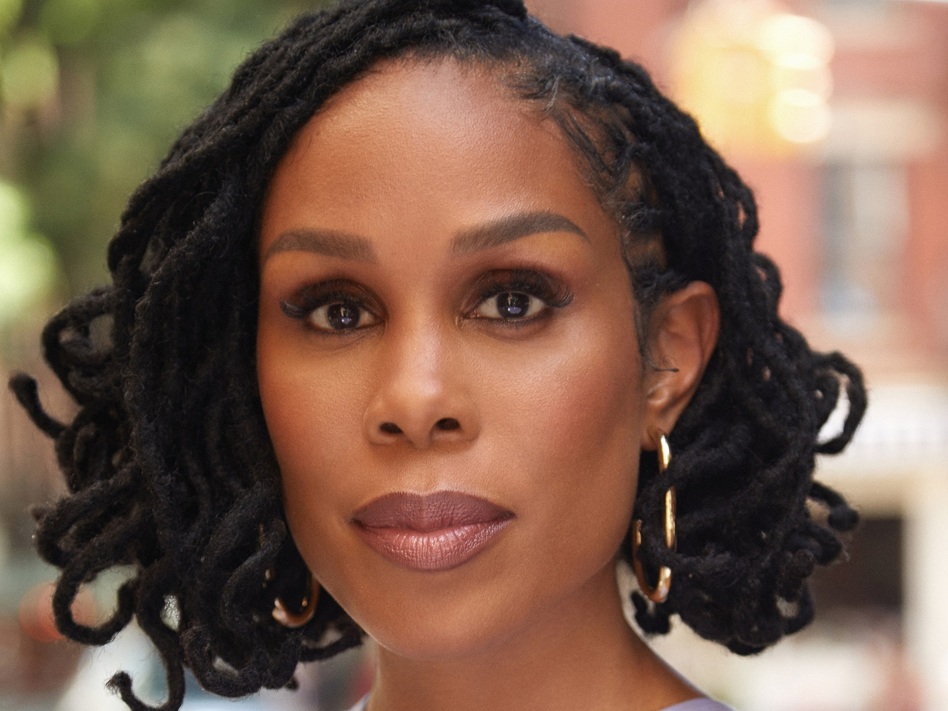
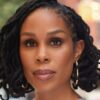
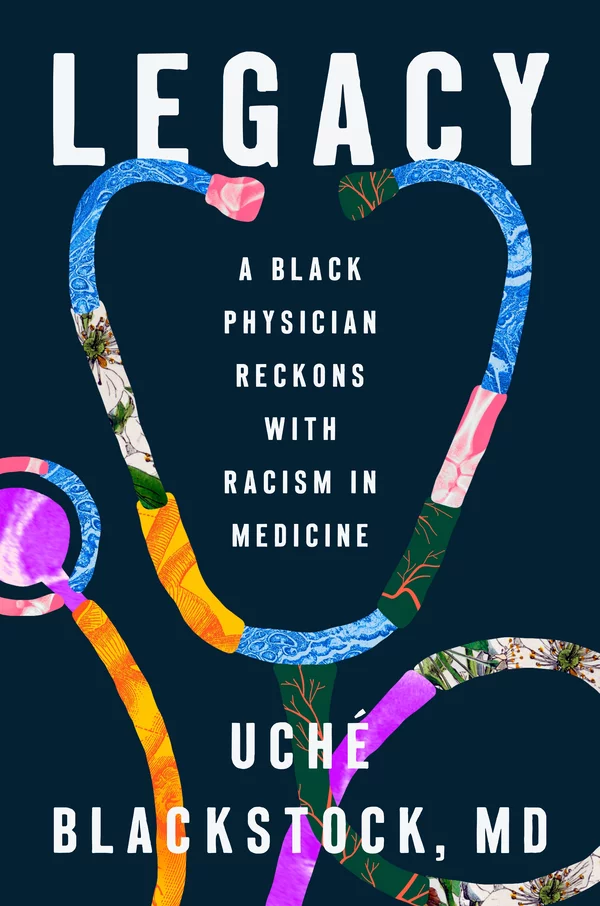
9(MDQ0ODU2MzU2MDE1NTM3MTIwMjFiMDhjNA000))
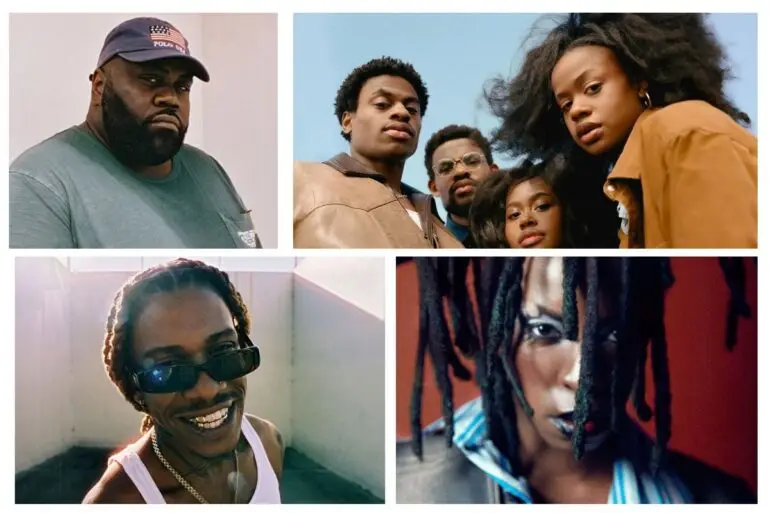
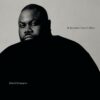




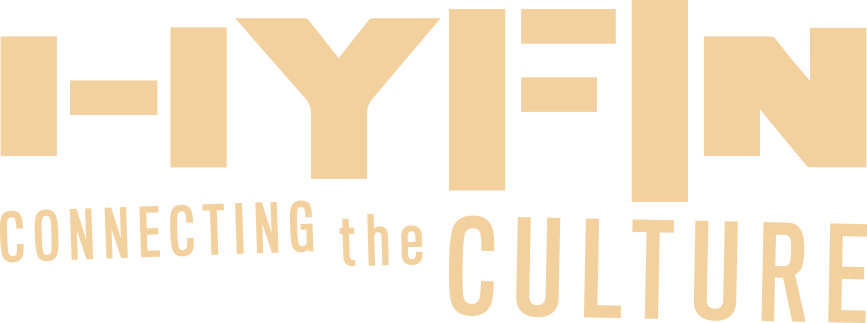

You must be logged in to post a comment.